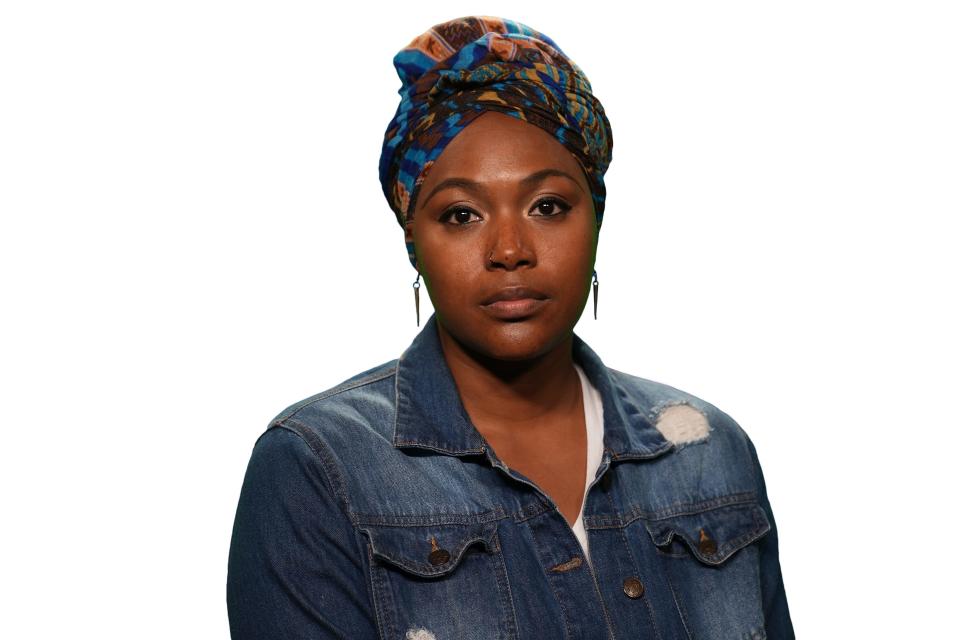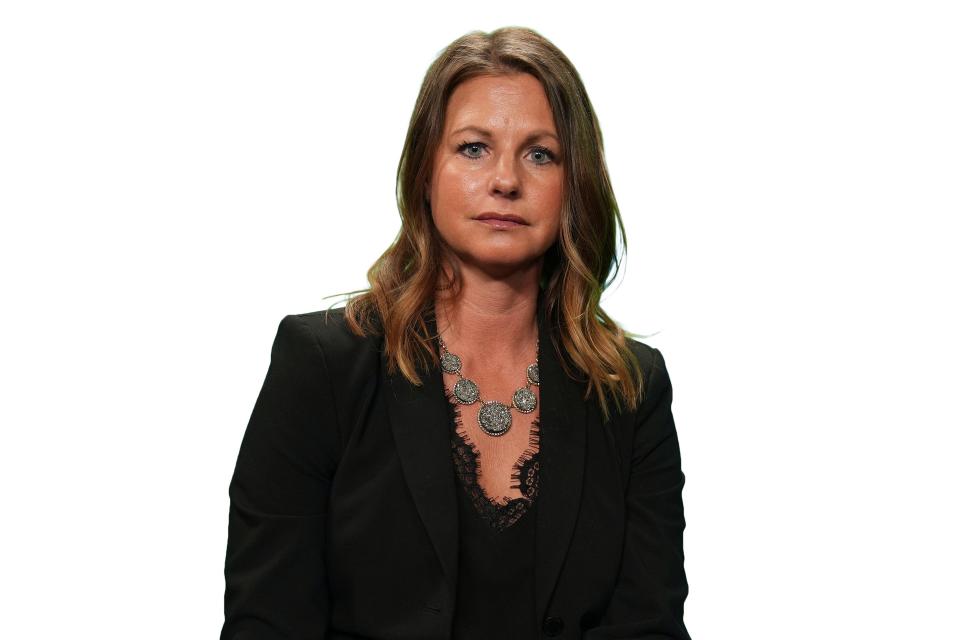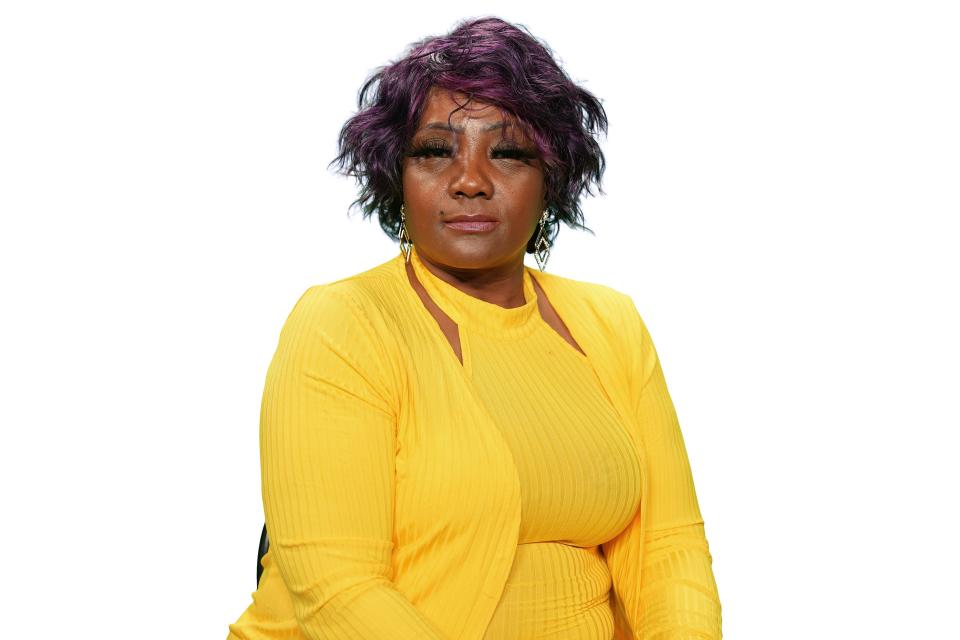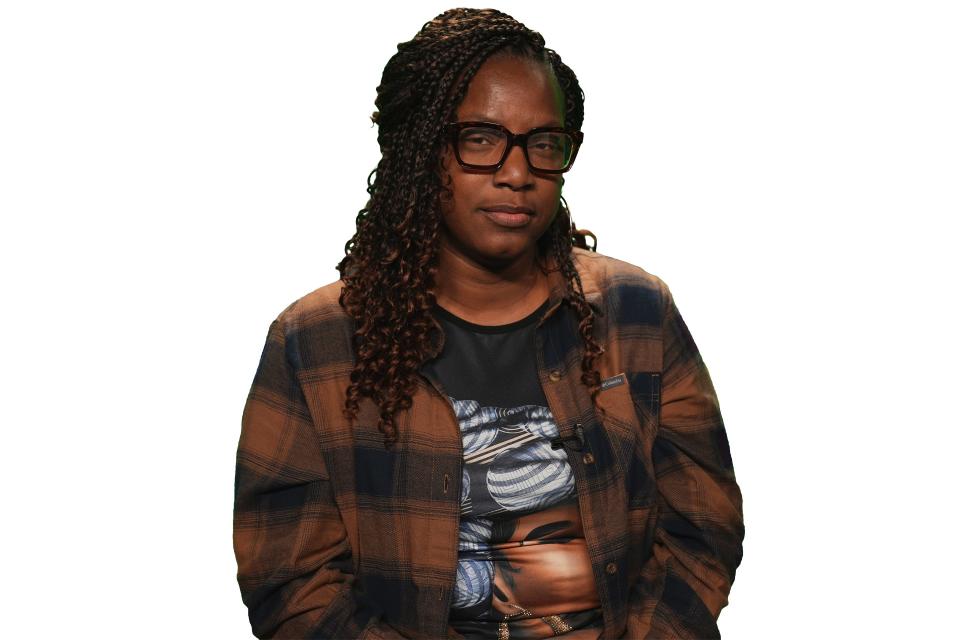What Wisconsin domestic violence survivors want you to know about abuse, getting help and finding hope
The stakes of domestic violence could not be higher.
The economic cost for the state is estimated at more than $650 million annually.
The link between domestic violence and mass killings is well-documented.
And in Wisconsin, someone dies in an act of domestic violence every five days.
At its core, domestic violence is about power and control in an intimate relationship.

Leaving an abusive relationship can be complicated and difficult. People often fear for their safety, custody of their children and their daily life, especially if they don't have stable housing or income outside of their partner.
But there is hope.
The Milwaukee Journal Sentinel asked four survivors of domestic abuse to offer their perspectives in honor of Domestic Violence Awareness Month, which runs throughout October.
Natalie Hayden and LaVerne Badger are the founders of "EXPOSED The Podcast" about life after an abusive relationship. Jennifer Moston and Rhoda Barnes are members of VOICES, a committee of survivors at Sojourner Family Peace Center who speak out to help others.

What do you want the public to understand about domestic violence?
Natalie Hayden: What's really important for the public to understand about domestic violence is that it does not have one face. It doesn't show up in just one part of the city. It doesn't show up with just one type of person.
LaVerne Badger: What I would love for the public to understand about domestic violence is that it is not a one-covers-all. There are several ways to be abused. ... People think of the physical right away. But there's the emotional, the mental. There's social media abuse now. There's spiritual abuse. There's financial abuse. ... I would love for people to understand that just because you're not physically being harmed, that you still can be in an abusive relationship.
Jennifer Moston: What I really want the public to understand about domestic violence is that it can happen to anyone. It doesn't matter your race or socioeconomic (status). It doesn't matter where you live, what you do for a living. It can affect anyone.
Rhoda Barnes: Domestic violence is dangerous. You either survive it or you die from it.

What helped you on your journey?
Hayden: Oftentimes when you are in a domestic violence circumstance, you are isolated and so you're not necessarily certain as to what to trust. ... The main thing that helped me was just being open to some of the advice, and even though I may have not taken it at that moment, it did resurface. I did think about it in those moments of despair and hopelessness and it was an opportunity.
Badger: It takes about 7 to 10 times to leave before you (permanently) leave, statistics say. And within those times that you leave and go back, people have dropped seeds in me. ... There were women who I would go into these small group counseling and I wouldn't talk much, but I heard what they were saying to me. They were things that were empowering me to get stronger and stronger, to say that I'm worthy.
Moston: What helped me most of my journey is reaching out to women's shelters for help, because if I would confide in friends, of course, naturally they would say, "You have to get out, you have to leave," and they didn't understand what a scary situation it was and how dangerous it was for me to get out.
What helped was stopping in the women's shelter in Waukesha and them saying, "We understand it's dangerous for you to get out, but what we're going to do is we're going to help you figure out a plan to get out, and we're going to help you figure out a plan what to do if another situation occurs."
Barnes: My higher power helped me in my journey, along with a few friends that understood me as a person and knew I didn't deserve that.

What would you say to someone currently in an abusive relationship?
Hayden: The message that I would have ... is to take it very seriously, to know that there is hope and to try again. Do not give up and to believe in yourself. Know that there is a way out, that there's a door. Always.
Badger: Understand that you're worthy. I know personally how hard it is to break away from an abusive relationship. And if you're ready to do that, then make sure you come up with a plan.
Moston: You can get help. You can be OK. You can survive. There are other women who understand exactly how you are feeling. And there are other women who have been through what you're going through. It feels extremely alone when you're in this situation and you feel like nobody understands. But I promise there are people who understand.
Barnes: I would say if you're in a current relationship of domestic violence, to get out and seek help — a therapist, a psychiatrist — because you're going to need it. All abuse does is burden you down with misery and our higher power didn't create us to suffer. He created us to live and help one another.
Where to find help
The National Domestic Violence Hotline is 800-799-7233.
The Sojourner Family Peace Center in Milwaukee operates a 24-hour confidential hotline at (414) 933-2722.
We Are Here Milwaukee provides information on culturally specific organizations at weareheremke.org.
The Women’s Center in Waukesha has a 24-hour hotline at (262) 542-3828.
The Asha Project, which serves African American women in Milwaukee, provides a crisis line from 9 a.m. to 4 p.m. at (414) 252-0075.
The UMOS Latina Resource Center in Milwaukee offers bilingual, bicultural, domestic violence, sexual assault and anti-human trafficking supportive services and operates a 24-hour hotline at (414) 389-6510.
The Gerald L. Ignace Indian Health Center offers culturally sensitive, trauma-informed services for those who have experienced domestic or sexual violence and can be reached at (414) 383-9526.
Our Peaceful Home, which serves Muslim families and is a program of the Milwaukee Muslim Women’s Coalition, operates a crisis line at (414) 727-1090.
The Hmong American Women’s Association, which serves the Hmong and Southeast Asian community, has advocates available at (414) 930-9352 from 8 a.m. to 4:30 p.m. Monday through Friday.
End Domestic Abuse Wisconsin has a statewide directory of resources at endabusewi.org/get-help.

Need more help with crime and safety questions? The Milwaukee Resource Guide is here to help. Have something you want answered? Submit a question.
Contact Ashley Luthern at ashley.luthern@jrn.com. Follow her on Twitter at @aluthern.
This article originally appeared on Milwaukee Journal Sentinel: What Wisconsin domestic violence survivors want you to know

